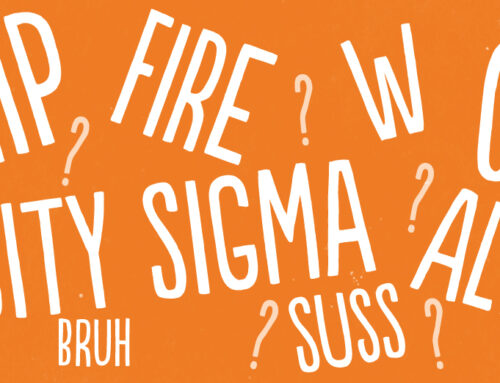Twenty-four years ago, I was starting my teaching career in a Grade 5 class. After the second month of school, my class was feeling pretty comfortable with me. There was a growing concern on my part about the note passing that was taking place. You remember the notes that were passed between students: “What are you doing after school today?” or “Who do you think is cute?” In this particular class, the note passing was getting out of hand (pun intended).
I announced that the next time I saw a note being passed I would confiscate it and read it aloud to the entire class. My thinking was that the potential for sharing some embarrassing information publicly would be a deterrent. However, almost immediately I saw one student hand-off a scrap of paper to another student.
I quickly confiscated the note, strode to the front of the classroom and began to read.
“Mr. Berger, your fly is down.”
We all had a good laugh and I was thoroughly embarrassed.
Fast-forward to last week.
I was sitting in our high school gym watching a basketball game. My daughter was score keeping on the other side of the gym. At half time, my cell phone buzzed informing me of a text message.
“Dad, it looks like you are flying low.” Once again, I was embarrassed, though not quite so publicly!
Write or Type?
This incident made me think.
Back in the day, we sent home a lot of paper from school. Forms and documents, classroom and campus newsletters, all printed and delivered by “kid mail,” just like the notes that were passed between students. The messages today are similar, but the forms of communication have changed dramatically.
We all know the famous phrase coined by Edward G. Bulwer-Lytton, “The pen is mightier than the sword.” Should a rewrite of this quote be something more along the lines of, “The thumb is mightier than the IED”?
What does this shift in the methods of communication mean for school? What skills should we teach? Where does handwriting fit? Do we even need to teach keyboarding skills now, as so much communication happens using just our thumbs or speech-to-text software? I heard a news story on how smart phones will be obsolete in five years! What skills will we need in order to navigate the world of communication then?
Take Note
At ACS, we have invested time and energy in teaching our students to be good, responsible digital citizens. Parent information evenings on parenting in a digital world have taken place. All students in the middle school participated in a week long intensive series of lessons on digital citizenship. Students were led through a series of lessons that focused on three main aspects of digital citizenship: protect, educate, and respect.
We want to prepare our students adequately and with discernment for the future they are going to face but with such rapid change, it is difficult to even know which tools they will need.
However, we will continue to work towards our mission to engage their minds, nurture their hearts and encourage our students to shape God’s world, with whichever tools are available to them.






WHAT DO YOU THINK?